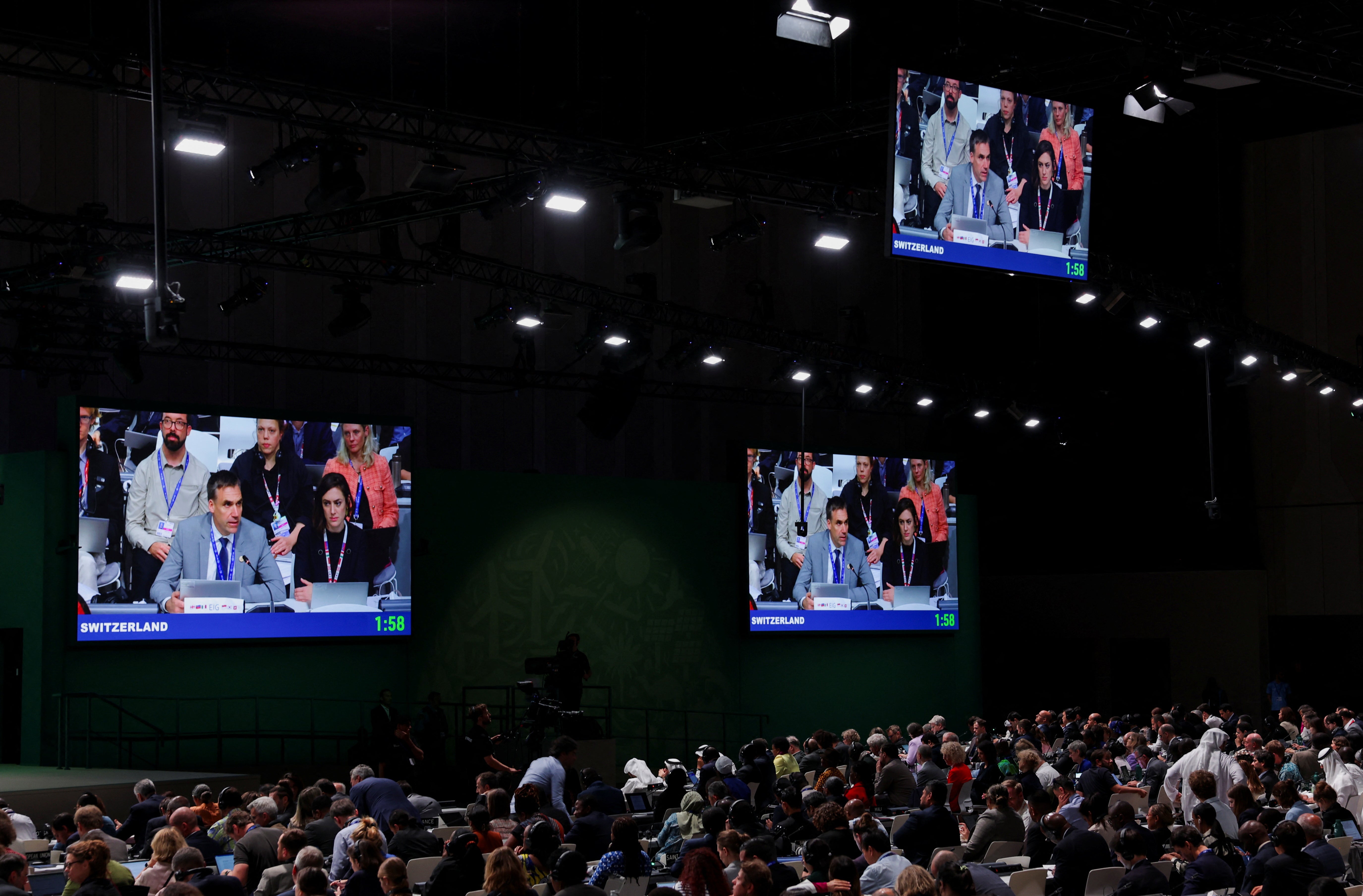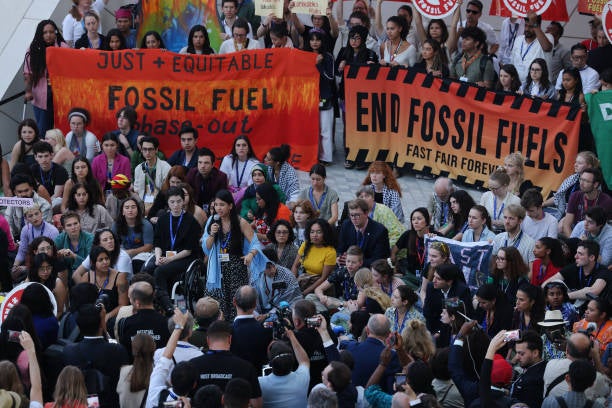Cop28 concludes with historic deal marking ‘beginning of the end’ for fossil fuel era
As the Cop28 fossil fuels pledge was welcomed by the UN, there was deep disappointment from small island nations: ‘This process has failed us’
Your support helps us to tell the story
From reproductive rights to climate change to Big Tech, The Independent is on the ground when the story is developing. Whether it's investigating the financials of Elon Musk's pro-Trump PAC or producing our latest documentary, 'The A Word', which shines a light on the American women fighting for reproductive rights, we know how important it is to parse out the facts from the messaging.
At such a critical moment in US history, we need reporters on the ground. Your donation allows us to keep sending journalists to speak to both sides of the story.
The Independent is trusted by Americans across the entire political spectrum. And unlike many other quality news outlets, we choose not to lock Americans out of our reporting and analysis with paywalls. We believe quality journalism should be available to everyone, paid for by those who can afford it.
Your support makes all the difference.The Cop28 global climate summit has reached a historic deal hailed by the United Nations as “the beginning of the end for the fossil fuel era”.
After more than 24 hours of fraught negotiations, an agreement was made to start transitioning away from all oil, coal and gas this decade, with a view to reaching net zero by 2050. The world currently is far off course from this target.
The pledge, signed by 200 countries in the final conference session on Wednesday morning in Dubai, also recognised the “need for deep, rapid and sustained reductions in greenhouse gas emissions”.
As the UAE’s Cop28 president Sultan Ahmed al-Jaber banged the gavel to signal agreement, delegates from around the world rose to their feet, clapping and hugging each other. But there was dissent from a number of countries, including the small island nations who condemned the final text as a “litany of loopholes”.
In a day of drama, delegates agreed to commit to:
- Tripling renewable energy capacity worldwide by 2030
- Phasing down coal usage and limiting the number of new and unabated coal power stations
- Transitioning away from fossil fuels in a “just, orderly and equitable manner” to achieve net zero by 2050
- Substantially reducing non-CO2 emissions, in particular methane, by 2030
Describing the deal as the “UAE Consensus”, the Cop president said it was a plan “led by the science” with commitments to meet the goals of the 2015 Paris Agreement.
“We have language on fossil fuels in our final agreement for the first time ever,” added Mr Jaber, who is chief executive of the UAE’s state oil company.

The UN welcomed the move, with its climate secretary Simon Stiell saying Cop28 had needed to send a signal on humanity’s core climate problem: “fossil fuels and their planet-burning pollution”.
“Whilst we didn’t turn the page on the fossil fuel era in Dubai, this outcome is the beginning of the end,” he said. The price of crude oil took a dip soon after the announcement was made.
The final text was a strengthening of language after an initial draft of the deal had removed any reference to “phasing out” fossil fuels, with the US and China claiming it was due to their intervention that negotiations got moving again.
UN secretary general Antonio Guterres had a stark message for those who blocked the inclusion of a call to “phase out” fossil fuels, with Saudi Arabia, Iraq, Russia, and members of the Opec+ group of oil-rich nations among those named publicly for opposing this language.
“Whether you like it or not, fossil fuel phase-out is inevitable. Let’s hope it doesn’t come too late,” he said.
Despite the historic shift on fossil fuels, there were many left deeply disappointed by the agreement. More than 100 countries, including the coalition of small islands and others facing extreme impacts, had called specifically for the “phase-out” or “phase-down” of fossil fuels to be included.
Anne Rasmussen, representative for Samoa speaking on behalf of the Alliance of Small Island States (AOSIS), said they were “confused about what just happened” and that they were not in the room when the text was adopted.
“This process has failed us,” she said, describing the document as a “litany of loopholes”. Her remarks were met with cheering and a longer standing ovation than the original fossil-fuel announcement.
Mr Jaber, who did not rise to clap, said that the AOSIS statement would be added to the record. Delegates largely acknowledged that the Dubai agreement – which required consensus of all countries, from the greenest to the oil-rich powers – was a step forward but that much more needed to be done to support and protect the most vulnerable.
It had been an exhausting and emotional marathon slog to reach this point after the summit ran nearly 18 hours past its official end time. On Monday, a previous draft had provoked fury over its significantly weaker language.

John Kerry, the US special climate envoy, said developing countries needed to be supported “every step of the way” to build their clean energy systems.
UK climate minister Graham Stuart, back at Cop28 after a brief 7,000-mile round trip to London on Tuesday to back prime minister Rishi Sunak’s Rwanda deportation bill, called for keeping 1.5C as the “North Star”.
He heralded the loss and damage fund, set up on the first day of the conference, as “long overdue”. But he said there was disappointment that more had not been done on coal in the Dubai text, an issue that the UK has championed at Cop28.
“There are elements here we do not like,” he said.
Germany’s climate minister Annalena Baerbock, speaking on behalf of the European Union, acknowledged the small islands, pointing to Samoa and the Marshall Islands, and said that the bloc had decided on a phase-out of fossil fuels to meet the 1.5C goal.
“We feel you, we see you,” Germany’s representative said. “We know for your children that this [agreement] might not be enough.
“We are walking the path of climate justice together.”

Join our commenting forum
Join thought-provoking conversations, follow other Independent readers and see their replies
Comments